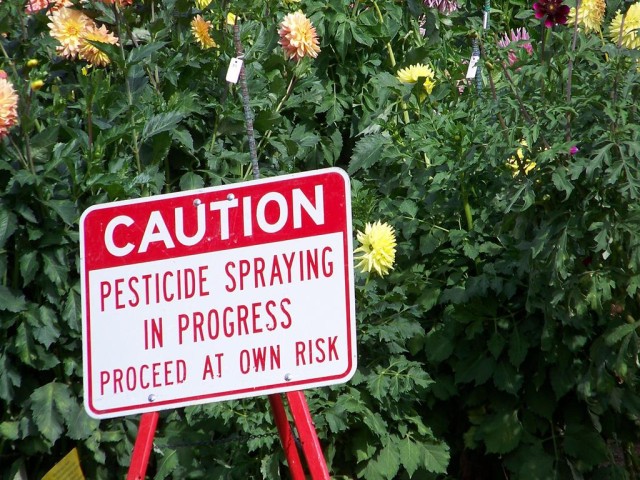·By
Senate Bill 1037 represents minor, tentative progress on tending to the public’s interest where pesticides are concerned. Still, it deserves to be passed.
If your next-door neighbor planned a major construction project, a big party with lots of traffic and noise or a termite treatment, you might expect he or she would stop by and share essential information on those plans prior to executing them. It would be the neighborly thing to do.
Senate Bill 1037 applies a watered-down version of this logic to something more serious than loud music or the dirt, traffic and noise of a building project: agricultural use of pesticides. Specifically, it would establish a mandatory disclosure program for pesticide use whereby agricultural businesses would be required to report all pesticide use on a monthly basis to the state Department of Agriculture.
Though the bill would require the reporting party to disclose the location and amount of pesticide use in each application, the legislation does not include before-the-fact disclosure. Neighbors who might be sensitive to certain chemicals or those who simply want to avoid exposure to potentially harmful substances would have no way to know under SB 1037 when such applications are planned.
It’s a fundamental flaw for legislation that could have been written to inform Hawaii citizens in a more meaningful way.

Unfortunately, this modest disclosure provision, due to be voted on Tuesday by the full Senate, is the best the Legislature can bring itself to do in the current session. A separate Senate bill that would have required disclosure and notice prior to pesticide use is stalled. A House bill that would have established buffer zones around agricultural fields where pesticides are used, protecting nearby residents from pesticide drift, was killed by House Agriculture Committee Chair Cliff Tsuji, and a bill that would have established buffer zones around schools was similarly quashed in the Senate by Sen. Jill Tokuda without so much as a hearing.
Such timidity in requiring even minimal public disclosure of pesticide use is disappointing, given the nature of the chemicals in question. While there are no peer-reviewed studies definitively linking agriculture pesticide use to human illness or death in Hawaii, there is no doubt that the pesticides themselves are toxic to people. Ingested, breathed or put into contact with skin in sufficient amounts, such chemicals can cause serious sickness and even kill.
Big Agriculture aggressively fights such regulation, and lawmakers, elected to serve the people’s interest, quietly defer tougher measures, neuter others through amendments or simply refuse to hear bills until the clock runs out.
Monday in Civil Beat, Rep. Cynthia Thielen detailed health concerns related to restricted use pesticides and noted the prevalence of at least one of them, Atrazine, which now shows up in 80 percent of statewide samples drawn to measure the prevalence of pesticides in Hawaii water supplies.
Eighty percent.
A good neighbor wouldn’t wait to let you know that. Concern for your health, your trust and for his own good name would compel him, at a minimum, to share his use of the pesticide so that you could take steps to mitigate any potential problems it might cause for you.
The Senate should waste no time in passing SB 1037 and sending it to the House for full consideration.
In the meantime, senators, their colleagues in the House and frankly all of us should reflect on what it means to look out for our neighbors, our communities and our state, and what legislators’ actions on pesticides this session say about whose interests are truly being protected.
see the article and comments here…
